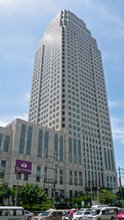
The uncertain political situation has continued to take a toll on Thailand's property market.
The dangerously unpredictable turns Thai politics has taken in recent months have scared off foreigners, who no longer seem interested in buying property in this country, says Fragrant Group president James Duan.
The Taiwanese developer of three condominiums _ Fragrant 71 in Sukhumvit Soi 71, Prime 11 in Sukhumvit Soi 11 and Circle on New Phetchaburi Road, Soi 36 _ said his company has not seen a single new foreign customer since the seizure of the capital's airports last December.
Foreigners who had previously bought units at Prime 11, which is due for completion in two months, and Circle, where construction is proceeding, have not dumped their contracts and walked away. However, Mr Duan said foreigners are worried about what might happen here.
Their worries do not centre on any difficulty they might face getting out of the country should the airports be seized again, but rather on the soundness of their investments. ''Although Thais too are worried, they are used to all this up to a point, but foreigners are extremely sensitive.''
However, Mr Duan feels sure the situation would improve if the dilemma is resolved satisfactorily because the country has faced other serious political problems over the past 30 years and has always eventually settled down.
Both Prime 11 and Circle have drawn European, US, Middle Eastern and Taiwanese buyers. Circle has attracted more Middle Eastern people, said Mr Duan, because it is just around the corner from Soi Nana, which has a heavy Middle Eastern influence. Neither project has drawn many people from mainland China, although there is expected to be a heavy Chinese influx in the next five years.
Mr Duan pointed out that one of Circle's selling points is that it is close to the soon-to-be-completed Makkasan rail link to Suvarnabhumi Airport. He said foreigners, and Fragrant Group as well, see Makkasan as the portal to Bangkok, but perplexingly Thais do not seem to think the rail link is of great significance.
Despite the unease over the shaky political situation and the difficulty in attracting foreign buyers, Fragrant Group is determined to continue developing property in Thailand, said Mr Duan. He is already scouting around for new land plots and hopefully the company will buy a a plot in one of the city's central business districts soon.
Fragrant's focus will remain on high-end condominiums. The company has no plans to shift gears to the middle or lower end of the market, mainly because it is banking on a resurgence of foreign clients, who mostly want to live in the heart of the city.
Mr Duan said the buyers the company targets may suffer from a lack of confidence in the Thai political scene at the moment, but they don't have financial problems, especially in taking transfers and getting bank loans.
To date, the Fragrant Group has invested 4.6 billion baht, with the value of its completed properties being 6 billion baht.
The Taiwanese developer is not too concerned about possible oversupply of condominiums in Bangkok because it feels that 3 million people out of the city's 10 million population can afford to buy a unit, while only around 100,000 units have been built so far.
However, there are other issues that will help propel the property market ahead. Among them is an anticipated rise in gross domestic product (GDP).
At the same time, bank lending is an issue, said Mr Duan.
''It's not that people don't want to buy _ they can't get bank loans.'' The reason Thailand is facing real estate problems now, he said, is that the banks don't release money easily because they are afraid of nonperforming loans.
''The finance industry here is not like America and other countries where people can just walk in and get cash.
''Being strict is good at one level, it leads to stability, but at the same time it slows growth.''
Mr Duan plans to use Thailand as a base for investment in other countries, especially India and China, whose drawing cards are their huge populations and economic growth.
He said there is a big difference in property prices between Thailand and some countries. For example, luxury condominiums in Taiwan cost around 300,000 to 400,000 baht a square metre, even in a bare-shell state.
''Condominiums in Hong Kong are five times more expensive than here, and in both Singapore and Taiwan they are three times steeper on average, but despite this the return on investment is better in Thailand.''
But there is no escaping the fact that these are extremely difficult times.
As Mr Duan sees it, the two segments of the Thai property market hardest hit by the lingering global crisis are at the extreme ends, one right on top and the other at the lowest rung.
The luxury end is battered by low demand because Thailand does not produce as many millionaires each year as does a country such as Taiwan.
Also, the millionaires in Thailand tend to prefer living in a house rather than in a condominium.
The low end is shaken by people being unable to borrow money to buy property because they have either lost their jobs or are in an insecure position.
However Mr Duan thinks the global economy seems to be improving because there is less bad news today than before, when the steady stream of negativity sapped global confidence.
He also expects Asia to see stronger economic growth than the West because he believes there is much more room for expansion here.
If the West is unable to obtain and market new technology, said Mr Duan, then Asia will be at the hub of future growth because Asia can expand rapidly for at least another 20 years without any problem.
Source: Bangkok Post 14 June 2009








